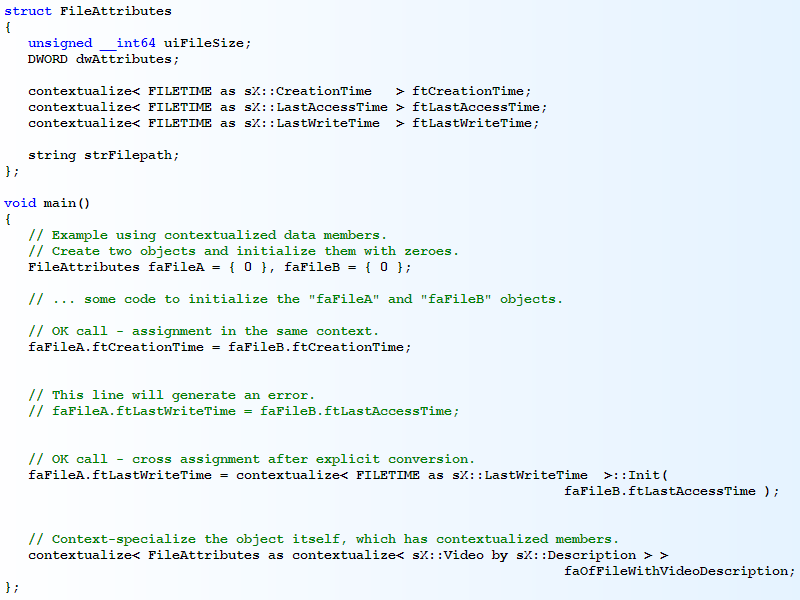|

|
 Object Contextualization Model
-
Version
1.0
Object Contextualization Model
-
Version
1.0
The Object Contextualization Model extends the Object
Oriented Paradigm by appending context to objects at
the point of their definition. The context is
represented by metadata, so that the objects with and
without context have the same footstep and
performance. Context definitions have no size and
complexity limits, and thus they could encompass large
composite meanings. Based on the context of an object,
the compiler is able to detect and decline incorrect
assignments, for example bool_Is_Monday =
bool_Is_Fish. Further, by attaching context to
function parameters, the Object Contextualization
Model removes the limitation of one function overload
per prototype per namespace, since even though
parameters may be of the same intrinsic type, the
different context makes them differentiable and
unambiguously referable. The latter is particularly
helpful for operator overloading since operators have
a fixed number of parameters, and up until now
multiple behaviors of operators could have been
achieved only by means of inheritance. The Object
|